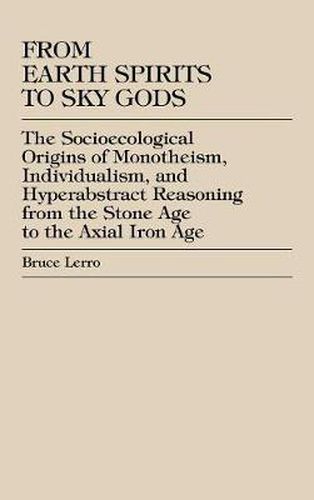Readings Newsletter
Become a Readings Member to make your shopping experience even easier.
Sign in or sign up for free!
You’re not far away from qualifying for FREE standard shipping within Australia
You’ve qualified for FREE standard shipping within Australia
The cart is loading…






In this thought-provoking new book, Bruce Lerro offers a speculative reconstruction of the sacred beliefs and practices of cultures existing between 30,000 and 500 B.C.E. Lerro describes how material changes in various social formations-including hunting-gathering bands and horticulturalists in villages-were responsible for the shift from magic to realism, from the belief in earth spirits to faith in sky gods. Drawing from such diverse theorists as Marx and Engels, Vygotsky, Piaget, and George Herbert Mead, Lerro critiques and transforms mechanical, humanistic, new age, and countercultural perspectives on the history of sacred traditions. This study of comparative religion and mythology has important applications for the fields of archaeology, evolutionary anthropology, sociology, political science, and comparative psychology.
$9.00 standard shipping within Australia
FREE standard shipping within Australia for orders over $100.00
Express & International shipping calculated at checkout
In this thought-provoking new book, Bruce Lerro offers a speculative reconstruction of the sacred beliefs and practices of cultures existing between 30,000 and 500 B.C.E. Lerro describes how material changes in various social formations-including hunting-gathering bands and horticulturalists in villages-were responsible for the shift from magic to realism, from the belief in earth spirits to faith in sky gods. Drawing from such diverse theorists as Marx and Engels, Vygotsky, Piaget, and George Herbert Mead, Lerro critiques and transforms mechanical, humanistic, new age, and countercultural perspectives on the history of sacred traditions. This study of comparative religion and mythology has important applications for the fields of archaeology, evolutionary anthropology, sociology, political science, and comparative psychology.